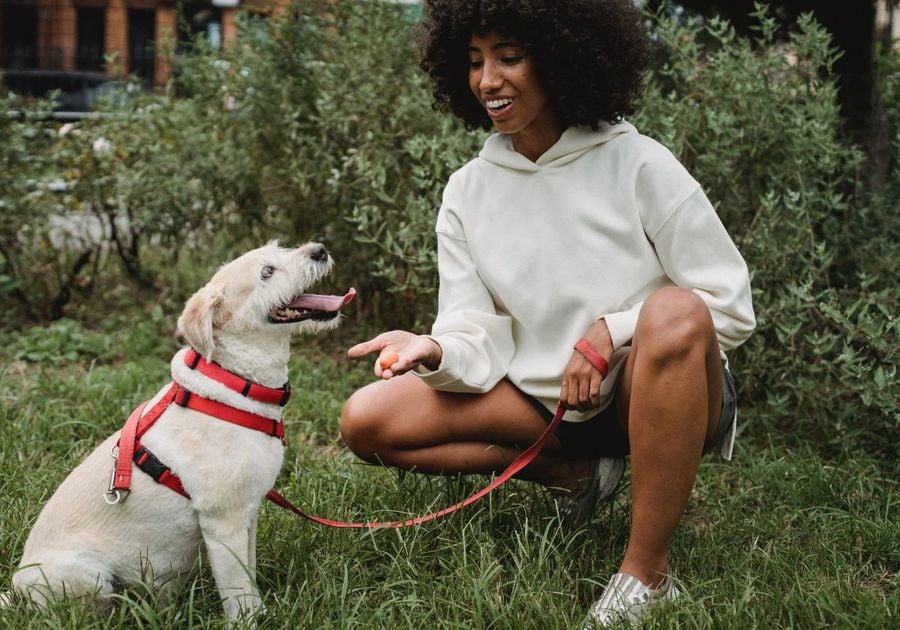Training unruly pets can be challenging, so we reached out to our friend and pet professional, Jamarl Boston, for some pointers. Jamarl stressed that with patience, consistency, and positive reinforcement, you can help them become better-behaved companions. Here are some steps you can take to train unruly pets:
- Start with Basic Commands: Begin with basic commands like "sit," "stay," "come," and "down." These commands provide a foundation for communication and control.
- Use Positive Reinforcement: Reward desired behaviors with treats, praise, and affection. Positive reinforcement helps pets associate good behavior with rewards, making them more likely to repeat those behaviors.
- Be Patient: Unruly pets might take longer to learn, so be patient and persistent. Avoid becoming frustrated, as pets can sense your emotions.
- Consistency is Key: Establish consistent rules and routines. This helps pets understand what's expected of them and reduces confusion.
- Set Realistic Expectations: Understand that training takes time and there will be setbacks. Set achievable goals and celebrate small successes along the way.
- Socialization: Socialize your pet with other animals, people, and new environments. This helps reduce anxiety and prevents aggressive or fearful behavior.
- Redirect Negative Behaviors: Instead of scolding or punishing for unwanted behaviors, redirect their attention to positive behaviors. For example, if your dog jumps on guests, ask them to sit instead.
- Clicker Training: Clicker training involves using a clicker to mark desired behaviors, followed by a reward. This method can help pets understand the exact behavior you're rewarding.
- Exercise and Mental Stimulation: Provide ample physical exercise and mental stimulation. A tired pet is more likely to be well-behaved. Engage in activities that suit your pet's energy level and breed.
- Seek Professional Help: If your pet's behavior is extremely challenging or dangerous, consider seeking help from a professional animal behaviorist or trainer. They can provide tailored guidance and techniques.
- Avoid Punishment: Avoid using physical punishment or yelling. These approaches can lead to fear and aggression, making behavior problems worse.
- Use Timeouts: For more persistent behaviors, like excessive barking or biting, use a timeout space (like a crate or a designated area) to give your pet a chance to calm down.
- Practice Regularly: Training isn't a one-time thing. Regular practice and reinforcement help solidify good behaviors.
- Monitor Diet: Ensure your pet's diet is appropriate for their age and health. Some behavioral issues can be linked to nutritional imbalances.
Remember that each pet is unique, so tailor your training methods to their individual needs. Some pets might respond better to certain techniques than others. Consistency, patience, and a lot of love will go a long way in helping your unruly pet become a well-mannered and happy companion.






